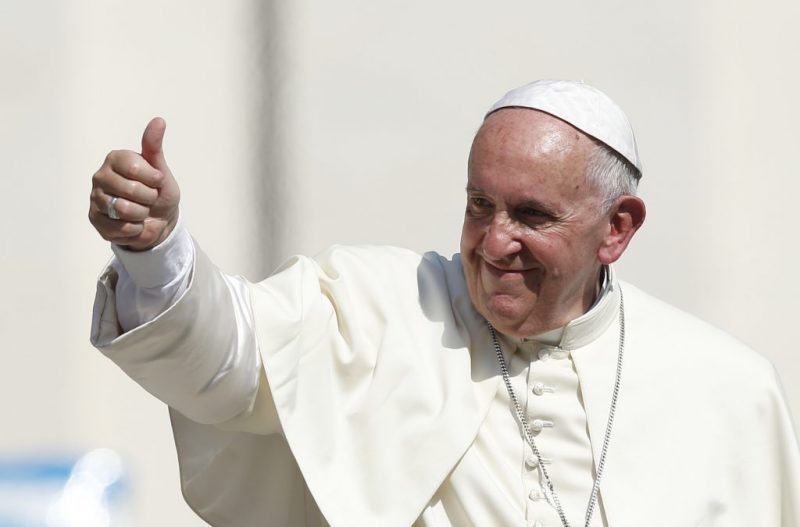In what has been building up as a gradual shift from tradition, Pope Francis has today declared the death penalty “inadmissible” in all cases and has directed the Catholic Church to foster efforts to abolish capital punishment worldwide.
This means that the Catholic Church — which has approximately a following of 1.2 billion people globally — will now take a stand against the death penalty, calling it unjustified and unnecessary in all and any circumstance whatsoever. Pope Francis has justified the position by saying that “the death penalty is inadmissible because it is an attack on the inviolability and dignity of the person”.
The news from the Vatican is a change in tradition though it reflects the gradual change in the death sentence stance that has spanned four Popes now. The Pontiff’s latest declaration means the Catechism (teachings of the Catholic faithful) has officially been altered. Previously, the Catechism allowed death penalty “if this is the only possible way of effectively defending human lives against the unjust aggressor.”
#PopeFrancis has approved a revision of the Catechism of the Catholic Church, changing paragraph 2267 to read "the death penalty is inadmissible". https://t.co/w21NTfJTL4
— Vatican News (@VaticanNews) August 2, 2018
This should cause ripples across the world, but also in Kenya where the death penalty has been a debatable matter. In the past month, the capital punishment was brought to the fore after prisons beauty queen Ruth Kamande was sentenced to death for murdering her boyfriend.
Such was the impact of Kamande’s sentencing, that her name appears as one of the most searched terms by Kenyans on Google for the month of July.
Kamande’s sentencing raised again a long term disagreement as to whether capital punishment should still be in force in Kenya. This is especially as the last death penalty to be executed in Kenya was over 30 years ago. In 1987, Hezekiah Ochuka was executed for having led a coup against the government five years earlier.
Religious blogger Ernest Wamboye responded last month to a question as to the morality of capital punishment by giving Biblical justification for its existence. Wamboye, through his Penstrokes Column wrote, “As believers, we see the earliest declaration of capital punishment as justice for murder in Genesis 9 [5-6]… the just act for one who takes the life of another is their life being taken by a fellow human. God’s plan is to take the life of a murderer for the sake of justice.”
The two-time Religious Blogger of the Year winner goes on to add that capital punishment is meant to promote the sanctity of life, rather than violate it. “We often look at the person facing the punishment in such situations, but we forget the one who was murdered.”
9 million :
Number who profess the Catholic faith in Kenya in 2013 as per statistics from the Kenya National Bureau of Statistics (KNBS)
Just last year, two death row convicts won a landmark case in which the Supreme Court termed mandatory death penalty as unconstitutional. While it still remains to be seen how this will be implemented , the apex court’s rationale indicated that capital punishment remains valid but it must not be the only remedy for Kenyan courts to turn to in cases where the death sentence applies.
In Kenya currently, the sentence is applicable if one is found guilty for any of these four crimes –treason, murder, attempted murder and robbery with violence.
What next?
Already, sections of the US media are reporting that the latest move by Pope Francis is set to divide the Catholic faithful within the American territory. With the proposed push to now garner for the total abolishment of the death penalty worldwide, politicians and leaders across the globe may now come under pressure to change legislation in that respect.
Here in Kenya, it remains to be seen what will happen.
Firstly, what route will the leaders of the Catholic Church in Kenya take? The denomination’s activities in Kenya in matters of social justice have bordered on clamorous calls while at times, they have been notoriously silent. Now, there definitely will be voice to the debate from Catholic clerics.
At the same time, what does this mean for the Catholic faithful in the country? If the leadership takes a united stand in light of the latest edict from Pope Francis, will the congregation follow?













2 Comments